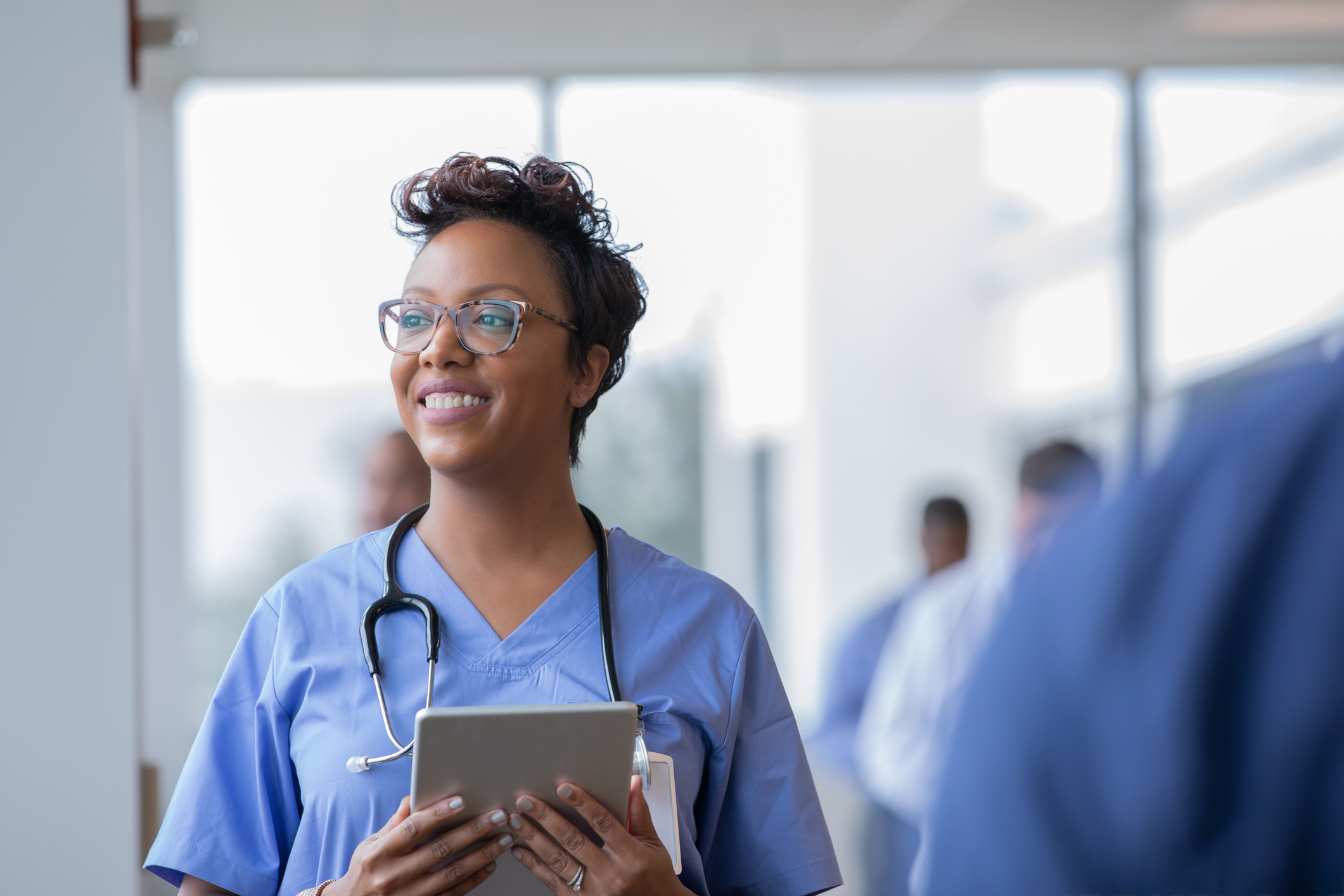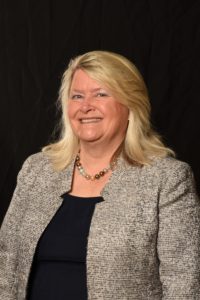Skelly Grant Funds Digital Health Equipment for Nursing Students
| The UAMS College of Nursing has been awarded a grant from the Gertrude E. Skelly Charitable Foundation to purchase equipment to educate both graduate and undergraduate students in digital health.
The grant includes $24,000 in funding, which will be matched by funding from the college.
“We want to train students to use devices, such as tablets with peripherals that measure weight, blood pressure or other health measures that can be sent digitally, as well as equipment that receives that information,” said Patricia Cowan, Ph.D. RN, dean of the UAMS College of Nursing and principle investigator on the grant.
“Much like we have a faculty member looking at using digital health technology to help manage individuals with heart failure, we want to have both sending and receiving equipment and to train students on how to use these types of technology.”
In addition, the College of Nursing will purchase a telehealth mobile unit with peripherals, similar to those used in clinics and hospitals. The purchased equipment will be set up in separate existing spaces – one to serve as a sending site and the other a receiving site – so students get experience working in both settings. The college will work with the UAMS Institute for Digital Health & Innovation in determining which equipment to purchase so it matches clinical practice.
“The reason we want to purchase our own equipment rather than borrow from the Medical Center is because that equipment is really for patient care. If you’re trying to train around 200 students each year, it’s difficult to take that many units used for patient care out of commission.”
Having nurses at all levels better trained on the uses and applications of equipment will make them better prepared for future jobs in digital health clinics – a growing sector in health care – as well as train them to better serve patients unable to access in-person care, such as rural patients.
“I think when we talk about expanding access to health care, digital health is one great way to do that. It’s more cost effective, too. If I can set up an appointment and do it digitally while receiving the same quality of care, then I don’t have to take off two hours to drive to a specialist provider or sit in the waiting room or spend on gas,” said Cowan.
The benefits of digital health, and the need for nurses to master the technology, extend beyond a patient connecting directly to a provider in their home.
“Local clinics do a lot of tests and point-of-care services that were once only done in hospitals. Those clinics are connected to hospitals through digital health,” said Cowan. “That decreases the burden of travel and the cost of access to patients. So while not everybody has a cell phone or internet access at their house, overall I think patients still benefit in a big way.”
The training will be “a great opportunity for our students” as they transition into the health care workforce.
“This opportunity for students will distinguish us from many other programs,” said Cowan. “I think when students graduate and start looking jobs, this training will influence the types of positions they will be offered.”
UAMS has received Skelly Foundation grants in the past, including for scholarship funds and for the Angel Eye camera system in the neonatal intensive care unit.
“The Skelly Foundation is really set up to help people help others by creating a ripple effect, and we certainly anticipate that here.”

